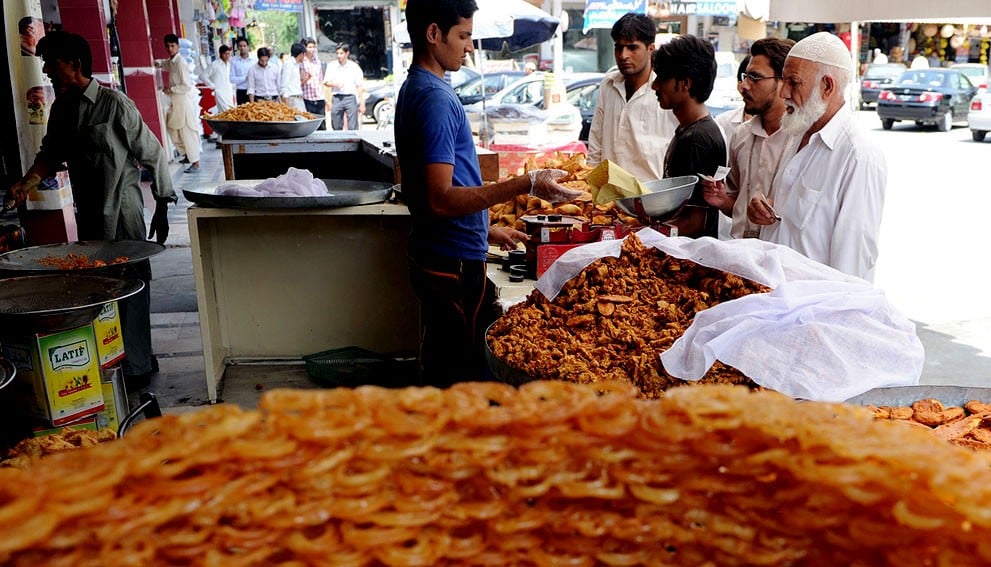
So, maybe, a little bit of tolerance is in order -- on both sides. The naysayers must let the faithfuls be. And the faithfuls must create some space for those who don’t fast

I casually ask my colleagues how many people they think fast in Ramzan. After some heated discussion, they all agree on a mean figure -- about 50 per cent. This, of course, is a rough calculation. If one excludes the elderly, children, most women for some part of the month, patients and those who have either given up on religion or do not subscribe to its ritualistic form, this could well be a correct assessment: only 50 per cent of the population fasts.
But that’s not what it looks or feels like in the public sphere. The roads wear a deserted look at the time of iftar, the businesses close, the business of the state closes much before that, and everybody likes to keep to their homes, or restaurants or friends’ houses, depending on how lucky you are on that particular day. An hour or a half before iftar is different though: there is commotion on the roads with everybody appearing to reach his or her destination quick.
Somehow, the arrival of the month makes those who do not fast a little uneasy, shall we say.
In an environment where the state, the media and the corporate sector assume an overly pious and sanctimonious look, for them it becomes a tad difficult to negotiate their daily lives as before. It is a month when they feel they are judged more than at other times -- for being the imperfect Muslims that they are. Only a few workplaces allow you the space to eat and drink as before.
Some of these non-fasting people blame it all on the Ehtram-e-Ramzan Ordinance 1981 from Gen. Zia’s time which, for the first time, disallowed eating in public and penalised it too in this country. Of course, you do not see the vigilante police out there imposing the law but news from here and there about random people being booked under the law is enough to scare the non-rozadars (the chap did know how to make laws that were effective; and equally so for the corrupt policemen to make some quick bucks).
These people nostalgically remember a time before the Ordinance when people in this country were free to do what they liked and there was more tolerance and mutual self-respect.
But a number of people worry less about this legal hassle and more about what they call the censure they receive from the righteous men and women around them.
Read more: Ramzan as usual
On the advent of Ramzan, their defence mechanism is set into motion and a war of wits begins between the two sides. The non-believers hit at the state for imposing its writ in a sphere that should best be left between man and God. They pick on how the virtue of tolerance takes a backseat in this month -- on the roads and in private conversations. They lament on how the congratulatory messages hailing the month mention the Arabised Ramadan and not the Persianised and, thus, Indian Ramzan. And they hold forth on the plentiful consumption of those who fast instead of the abnegation and self-control that the month should aim at.
This war of wits, too, has become a yearly ritual. Interestingly enough, this war merely lasts till the end of the day, i.e., the iftari time when those who fast and those who don’t come together on one table and eat without any grudges. And whatever grudge is left ends on Eid which is celebrated by all.
So, maybe, a little bit of tolerance is in order -- on both sides. The naysayers must let the faithfuls be. And the faithfuls must create some space for those who don’t fast, especially when that means half of your population.